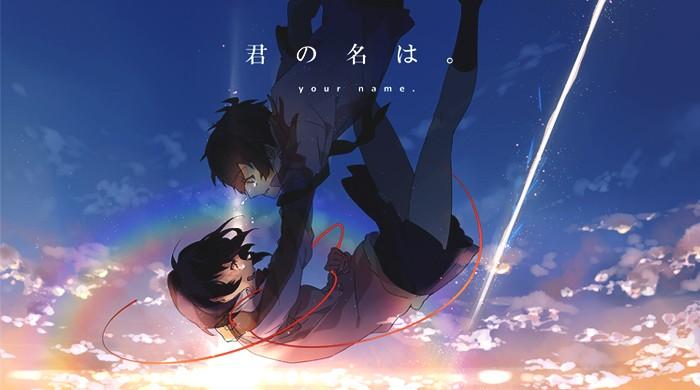
PARIS: Apparently, 43-year-old director Makoto Shinkai has a big problem. His mystical teenage body-swap movie "Your Name" has become such a massive hit it's beginning to worry him.
"It's not healthy," the boyish director told AFP. "I don't think any more people should see it."
Every week it gets closer to being the biggest Japanese animated film of all time. And now there's talk of Oscars.
"I really hope it doesn't win," he added.
It would be funny if Shinkai wasn't so in earnest about getting off the promotional circuit and back to work. He just wants to get on with his next story about teched-up Japanese teens.
But the little animated film has become a runaway cultural juggernaut in Asia, and now it's winning awards in the United States and Europe.
One in seven Japanese have already paid to see its brilliantly-plotted supernatural love story about a boy and a girl who exchange bodies as a comet is about to hit the Earth.
Inevitably, it has led to Shinkai being called the "new Miyazaki" – the natural successor to the now-retired animation maestro Hayao Miyazaki, whose 2001 classic "Spirited Away" is still the most successful Japanese film ever.
But the comparison makes the diminutive Shinkai even more uncomfortable.
"Of course I'm happy when people mention his name and mine in the same breath. It's like a dream. But I know they are overpraising 'Your Name' because I am absolutely not at Miyazaki's level. Honestly, I really don't want Miyazaki to see it because he will see all its flaws," he added.
Rave reviews
Despite the rave reviews, Shinkai insists his film is not as good as it could have been – a refreshingly-novel approach for the man who is supposed to be promoting it.
"There were things that we couldn't do," he said, explaining that his team of animators led by one of Miyazaki's greatest disciples, Masahi Ando, wanted to keep working on it, but with money running out he had to stop.
"For me it's incomplete, unbalanced. The plot is fine, but the film is not at all perfect. Two years was not enough."
However, Shinkai knew he had a hit on his hands when he showed it in Los Angeles before its Tokyo premiere. "The audience laughed then they sobbed... I had drawn a graph when I was making it about how the audience might react, and it was just like that.
"Obviously I was happy to see it worked, but at the same time I was afraid that it had worked too well. I said to myself, 'Damn, maybe I overdid it'."
Laughing about sexuality
More than anything, the movie's motor is the comedy Shinkai extracts from the hilarious gender swap setup, with its running gag of the horrified boy waking up in a girl's body, and yet unable to stop himself from appreciating her.
"I wanted to talk about the way we see sexuality now but in a funny way," he said.
The ying and yang doesn't end there. The story is set between the beautiful mountainous Nagano region where Shinkai grew up and Tokyo's hyper modern megapolis. It also plays on the tension of teenagers desperate to quit their small towns for the big city, yet, who are still entranced by the beauty of age-old Japanese traditions.
"It is a film about memory, but also about losing memories," said Shinkai, who adapted the story from his own novel. "It's about individual memory and collective memory, the forgetting of a certain morality, and sense of tradition."
While he is resigned to the fact that the comparison with Miyazaki will haunt him forever, he insisted that they are very different. To prove this, he commissioned the Japanese J-rock group Radwimps – whose music you could see giving the old master tinnitus – to do the soundtrack.
Shinkai is also at pains to point out that although "the chemistry between Ando" and his other lead artist Masayoshi Tanaka was key to the film's success, his team is no reboot of Miyazaki's famous Studio Ghibli.
"I have never really sensed any of Miyasaki's artistic influence on Ando. If there is an influence it's more in his attitude to his work," he said. "When Ando arrives in the studio, he picks up his pen even before he gets a cup of tea, and he stays seated until the very last train at night.
"He hardly eats, just nibbles at little balls of rice at his desk. He hardly ever goes to the toilet. When I see him, I see a monk in a monastery, and I say to myself [that] that is perhaps how the people at Studio Ghibli work."
No comments:
Post a Comment